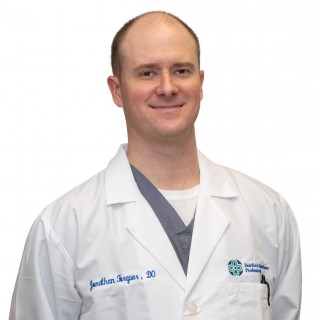
Preventive Cardiology: Staying Ahead of Heart Disease
February is American Heart Month, which makes it the perfect time to focus on lifestyle changes like eating a heart-healthy diet, committing to an exercise routine, and visiting your primary care provider for a wellness exam. It also might be a good idea to talk with your doctor about exploring preventive cardiology.
Cardiology is a practice that focuses on heart health, and preventive cardiology is considered a subspeciality of the field. Preventive cardiology prioritizes identifying and managing cardiovascular risk factors before a heart attack ever occurs. It is particularly important for those with:
- A strong family history of heart disease
- A personal history of early-onset heart disease
- Certain health conditions – like diabetes – that significantly increase cardiac risk
- Heart disease precursors, like high cholesterol and hypertension
At Fairfield Healthcare Professionals Cardiology, Jon Forquer, DO, is committed to curbing cardiac emergencies for his patients.
“Preventive cardiac care goes beyond that discussion of a healthy lifestyle,” shared Dr. Forquer, who is Fairfield Medical Center’s director of cardiac imaging. “We have tools that can give us a clearer picture of whether heart disease is present or not and how aggressive we need to be in treating it.”
According to Dr. Forquer, a test called a coronary artery calcium (CAC) score is a great opportunity to provide peace of mind or kickstart a proactive approach to heart care. This quick and minimally invasive CT scan of the heart can detect even small amounts of calcium deposits within the arteries. If the test comes back without any plaque, it’s an indicator that the chance of a future heart attack is low. If the test comes back with mild or moderate amounts of plaque, it may signal a need for medications or procedures to reduce the risk of a cardiac event.
“The best part about finding calcium in the arteries early is that we can now arrange for interventions and be really aggressive in controlling cholesterol, blood pressure and diabetes,” Dr. Forquer explained. “On the flip side, if a test comes back all clear, that’s great news. Now, you can exercise and really build your cardiovascular health with confidence instead of worrying about whether you’re doing more harm than good.”
When it comes to heart health, the adage of “an ounce of prevention is worth a pound of cure” rings true. This test is most beneficial for those without symptoms of heart disease, as the onset of signs like chest pain or shortness of breath may indicate the need for more advanced treatment. You might be a candidate for preventive cardiology if you are between the ages of 40-70 with a history of tobacco use, high blood pressure, high cholesterol, diabetes, or obesity. Likewise, if you are younger than 40 with a strong family history of heart disease, talk with your provider about whether a CAC score is right for you.
To learn more about preventive cardiology and other available services, contact Fairfield Healthcare Professionals Cardiology at 740-689-4480.
